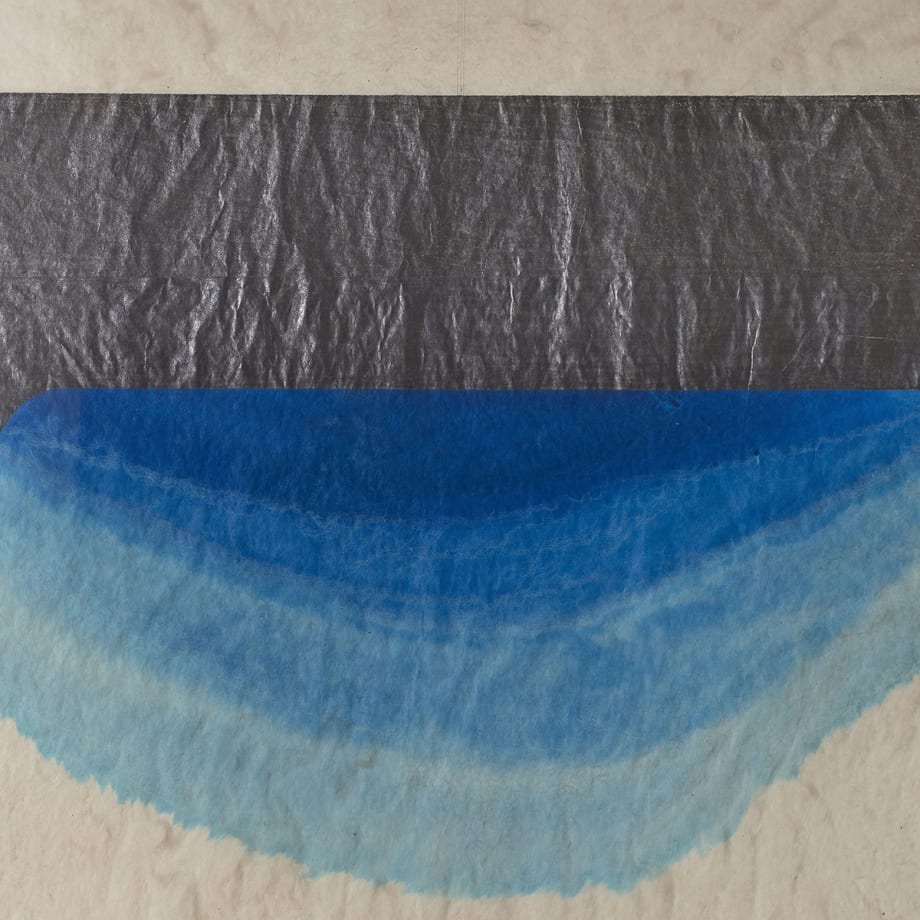Drift
Lluis Lleo | Suki Jobson | Simon Allison | Phillip Hunt
Among the many dictionary definitions of 'drift' is 'the flow of a current'. But you can also drift a flock of sheep, for a drift is 'something driven or drawn together'. Just so, this show emerged from curator Nico Kos Earle's curatorial drift between continents, which led her to Lluís Lleó, from Manhattan and Barcelona; Suki Jobson, who works between Sligo, London and Marseilles; Phillip Hunt in Cape Cod via New York and Johannesburg; and Simon Allison in Oxfordshire and Aukland. Their voices seemed in compliment, and here their commonalities are corralled into three main holding points: movement between places; transition between one way of being and another; and an openness to the use of found and contingent materials.
Movement Between Places
To drift is to deviate off course, and all four artists have moved away from (a) places, but also returned. Fifth in line to generations of painters, Lluís grew up in Catalunya but moved to Manhattan in 1989. This summer he reclaimed his father's old studio near Barcelona. Last year Simon went back to New Zealand and bought a studio where he worked alone for three months to produce his solo show, Shift. He, like Suki, likes to walk out of his studio, to see what he might find. (Suki walks in Sligo with her dog, Finch, and with shepherds and their flocks in the Alps Maritimes). Phillip finds the wild coast of Cape Cod a ballast to his work. 'This is emotional space', he says, 'especially in winter. In painting I like the idea of disappearing into an image or emotion'. Each winter's sole painting is lonely and majestic.
Untethering and Transition
All four artists share an untethering from the familiar or transitioning into the unknown. Suki is a geographer who studied law. She worked in geopolitics for 15 years, but words came to seem restrictive and inadequate to her. Now she is searching to unearth a lost more universal language - a pre-language…. Her lines and threads meander from one work to the next, between inside and outside, conscious and unconscious, as she seeks our connections - relationship - to the land. Lluís grew up immersed in the tradition of the fresco, left for another continent, and developed work shaped by fresco's hallmarks. Simon visits the wilderness often, and records or brings back traces of humanity. Through the fiery process of lost wax casting, these secret gestures are transported into a future perfect. Phillip's painting is his medium of self-discovery. He let go of commercial filmmaking, but continued to paint because he needed to - whether to process his thoughts, or simply to disappear in the making. Since 2009 he has produced just one monumental work each year. Time is key here, not just in the making but in the sense of time spent with the work.
The Drift of Materials
Materials can act as a catalyst: Lluís shipped five 6,000lb sandstone slabs from Catalonia to Park Avenue, applied shapes in ultramarine and cadmium, and planted them like erratics in the flowerbeds. Suki found torn and stained ancestral linen under the stairs of her father's studio in Ireland, choosing shapes intuitively, she then reassembled the pieces into a triptych. For Ova she sewed found ovals, once cloth for trays, like giant eggs. This circles back to the imprint of place on our psyche, and how primordial shapes drift in and out of our consciousness. Materials can form the substrate from which ideas emerge, as with Lluís' discovery of hand pressed Nepal Mitsumata paper. Simon uses the ancient method of lost wax casting - for corrugated iron, fruit, bark, even tissue paper. He tends to let things fall apart, then put them back together, stronger. 'Spin Cycle' makes a time piece out of a young fallen trunk. Driftwood. Phillip's 'Paper Jets' are more about drifting across time. He came across a suite of old works on a trip home to South Africa after his father's death. Perhaps he found a part of himself he had forgotten. He brought the pieces back to Cape Cod and completed them with small biomorphic overlays.
It may not be in the nature of the drift to reach an end point, but Webster's seventh definition is 'an assumed trend toward a general change'. Just as these works defy any single reading, they also creates a space for us to let go of what we think we know and just drift into how we might be different.
